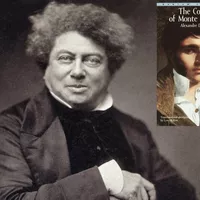Chapter 14. The Two Prisoners (2)
The soldiers interposed their bayonets, for they thought that he was about to attack the inspector, and the latter recoiled two or three steps. Dantes saw that he was looked upon as dangerous. Then, infusing all the humility he possessed into his eyes and voice, he addressed the inspector, and sought to inspire him with pity.
The inspector listened attentively; then, turning to the governor, observed, "He will become religious--he is already more gentle; he is afraid, and retreated before the bayonets--madmen are not afraid of anything; I made some curious observations on this at Charenton." Then, turning to the prisoner, "What is it you want?" said he.
"I want to know what crime I have committed--to be tried; and if I am guilty, to be shot; if innocent, to be set at liberty." "Are you well fed?" said the inspector.
"I believe so; I don't know; it's of no consequence. What matters really, not only to me, but to officers of justice and the king, is that an innocent man should languish in prison, the victim of an infamous denunciation, to die here cursing his executioners." "You are very humble to-day," remarked the governor; "you are not so always; the other day, for instance, when you tried to kill the turnkey." "It is true, sir, and I beg his pardon, for he his always been very good to me, but I was mad." "And you are not so any longer?" "No; captivity has subdued me--I have been here so long." "So long?--when were you arrested, then?" asked the inspector.
"The 28th of February, 1815, at half-past two in the afternoon." "To-day is the 30th of July, 1816,--why it is but seventeen months." "Only seventeen months," replied Dantes. "Oh, you do not know what is seventeen months in prison!--seventeen ages rather, especially to a man who, like me, had arrived at the summit of his ambition--to a man, who, like me, was on the point of marrying a woman he adored, who saw an honorable career opened before him, and who loses all in an instant--who sees his prospects destroyed, and is ignorant of the fate of his affianced wife, and whether his aged father be still living! Seventeen months captivity to a sailor accustomed to the boundless ocean, is a worse punishment than human crime ever merited. Have pity on me, then, and ask for me, not intelligence, but a trial; not pardon, but a verdict--a trial, sir, I ask only for a trial; that, surely, cannot be denied to one who is accused!" "We shall see," said the inspector; then, turning to the governor, "On my word, the poor devil touches me. You must show me the proofs against him." "Certainly; but you will find terrible charges." "Monsieur," continued Dantes, "I know it is not in your power to release me; but you can plead for me--you can have me tried--and that is all I ask. Let me know my crime, and the reason why I was condemned. Uncertainty is worse than all." "Go on with the lights," said the inspector. "Monsieur," cried Dantes, "I can tell by your voice you are touched with pity; tell me at least to hope." "I cannot tell you that," replied the inspector; "I can only promise to examine into your case." "Oh, I am free--then I am saved!" "Who arrested you?" "M. Villefort. See him, and hear what he says." "M. Villefort is no longer at Marseilles; he is now at Toulouse." "I am no longer surprised at my detention," murmured Dantes, "since my only protector is removed." "Had M. de Villefort any cause of personal dislike to you?" "None; on the contrary, he was very kind to me." "I can, then, rely on the notes he has left concerning you?" "Entirely." "That is well; wait patiently, then." Dantes fell on his knees, and prayed earnestly. The door closed; but this time a fresh inmate was left with Dantes--hope.
"Will you see the register at once," asked the governor, "or proceed to the other cell?" "Let us visit them all," said the inspector. "If I once went up those stairs. I should never have the courage to come down again." "Ah, this one is not like the other, and his madness is less affecting than this one's display of reason." "What is his folly?" "He fancies he possesses an immense treasure. The first year he offered government a million of francs for his release; the second, two; the third, three; and so on progressively. He is now in his fifth year of captivity; he will ask to speak to you in private, and offer you five millions." "How curious!--what is his name?" "The Abbe Faria." "No. 27," said the inspector.

